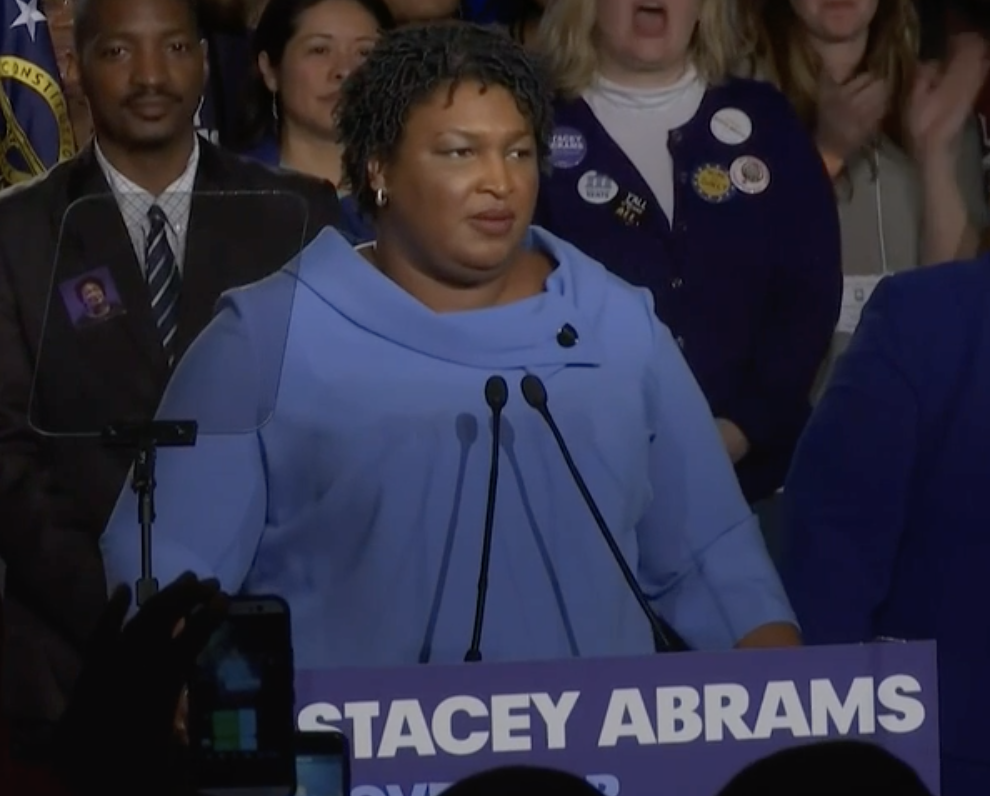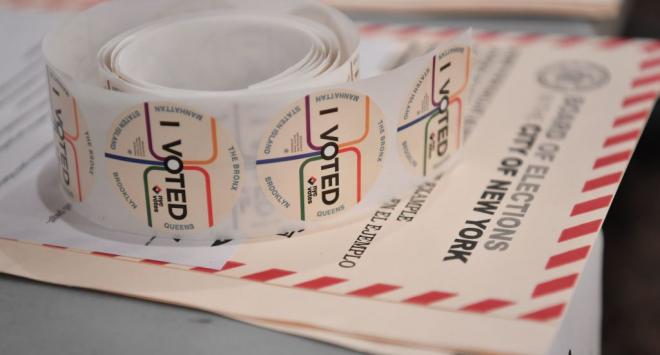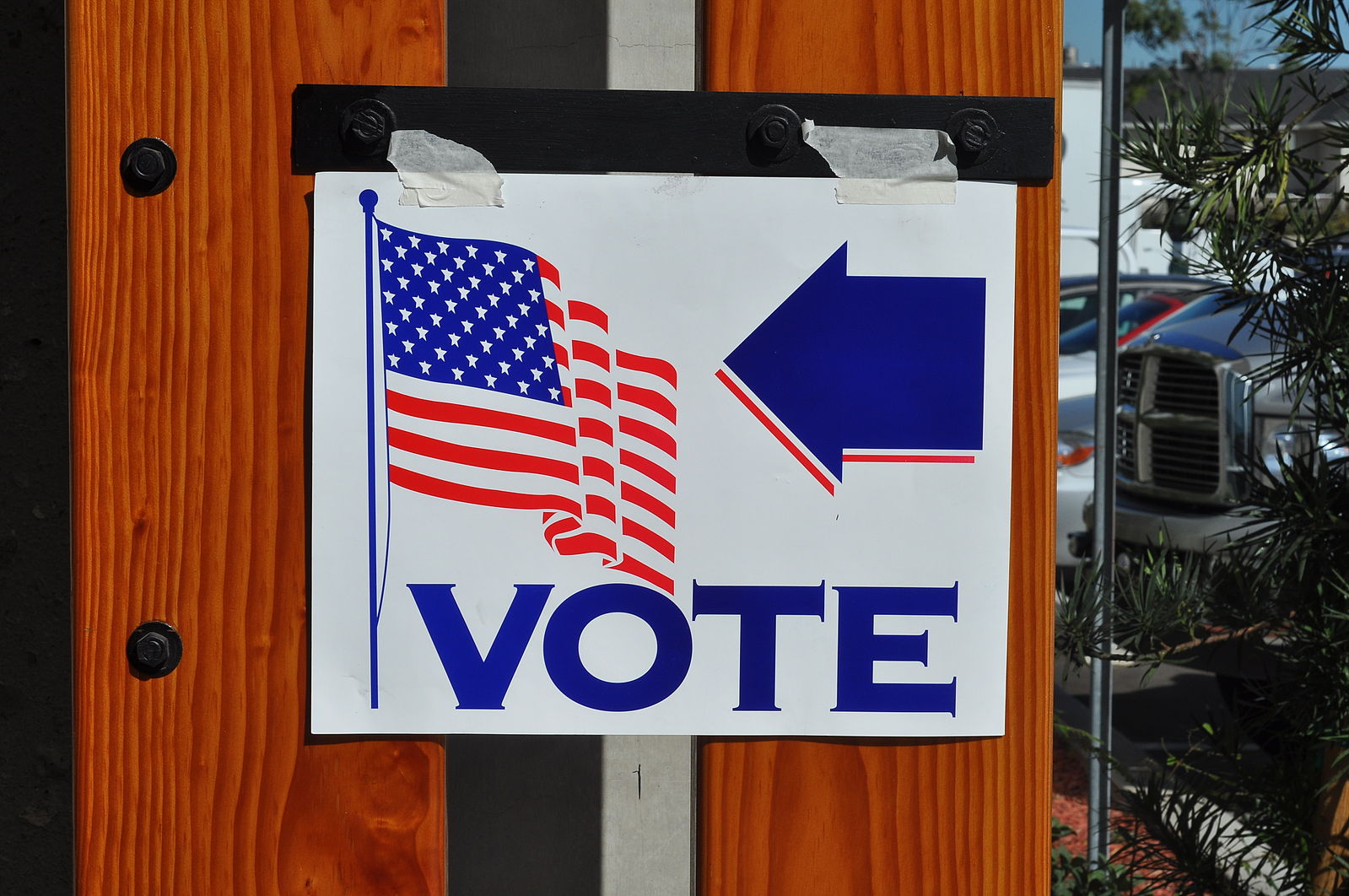53,000 Stalled Votes in Georgia’s Governor Election: Stacey Abrams vs. Brian Kemp
The monumental battle continues between the candidates for Georgia governor, as Republican Brian Kemp is narrowly ahead of Democrat Stacey Abrams by less than 100,000 votes.
The candidates await the counting of absentee ballots and the decision is balanced on the result of another crucial factor: As citizens heard Abrams’ encouragement to let their voices be heard and register to vote, 53,000 people had their voting registrations put on hold as a result of Georgia’s “exact match” law.
The law dictates that the information on the voter’s registration form must be a perfect match to government records. Therefore, if a citizen wrote a nickname or the government officials misspelled their street address, thier opportunity to vote would be delayed.
If these citizens were willing to wait in long lines for hours to prove their citizenship — if they even realized their registration was invalid — then they would be permitted to cast a ballot.
This is where controversy arises.
Several civil rights groups have filed a lawsuit against Kemp, claiming he is responsible for enforcing this “exact match” law. About 80 percent of stalled registrations are African American, Latino, and Asian American voters.
The groups claim that Kemp is in violation of the 14th Amendment, the Voting Rights Act, and the 1993 Voter Registration Act.
The lawsuit directly states, “It (the exact match law) imposes unnecessary and discriminatory burdens on the voter registration process.” These allegations are particularly relevant because if Abrams won the election, she would be the first African American woman governor of Georgia.
Both Oprah Winfrey and former President Barack Obama have advocated for Abrams while President Trump stands in Kemp’s corner.
Many activists wonder if this supposed technical error is an attempt to deter people of color from voting as if it were a modern day poll tax. Because of the long hours people must dedicate to standing in line to fight to cast their ballots, many have been deterred, and have forfeited their voice. Abrams has told voters that she will not concede the race and will work to see that every vote is counted.
“Democracy only works when we work for it, when we fight for it, when we demand it, and apparently today when we stand in line for hours to meet it at the ballot box,” Abrams said to frustrated voters around 2 a.m. on Wednesday.

Many have questioned why Kemp did not step down as Secretary of State during the election campaign, to relinquish responsibility and let the people of Georgia have a say in leadership. According to The Atlanta Journal Constitution, the chairman for the Democratic Party of Georgia, DuBose Porter, felt cheated by Kemp’s refusal to step down.
“He’s collecting a taxpayer-funded salary, and he’s not even showing up to the job he was elected to do,” Porter told the AJC. “If regular-working Georgians don’t show up to work, there are consequences. He thinks the rules don’t apply to him.”
The race continues to narrow as both candidates have racked up significant support from Georgians, especially in their efforts to target citizens who normally do not vote in midterm elections. Abrams focused her campaign on liberal issues, such as implementing fully funded public education, health care reform and raising incomes without raising taxes. On the other hand, Kemp targeted a conservative audience by focusing on illegal immigration and abortion.
If Abrams gains on Kemp to the point that neither candidate had over 50 percent of the votes, they will make history by taking part in the first general election runoff in Georgia. Libertarian candidate Ted Metz earned 0.9% of the votes, a total of 37,081.
The runoff would take place on Dec. 4.



